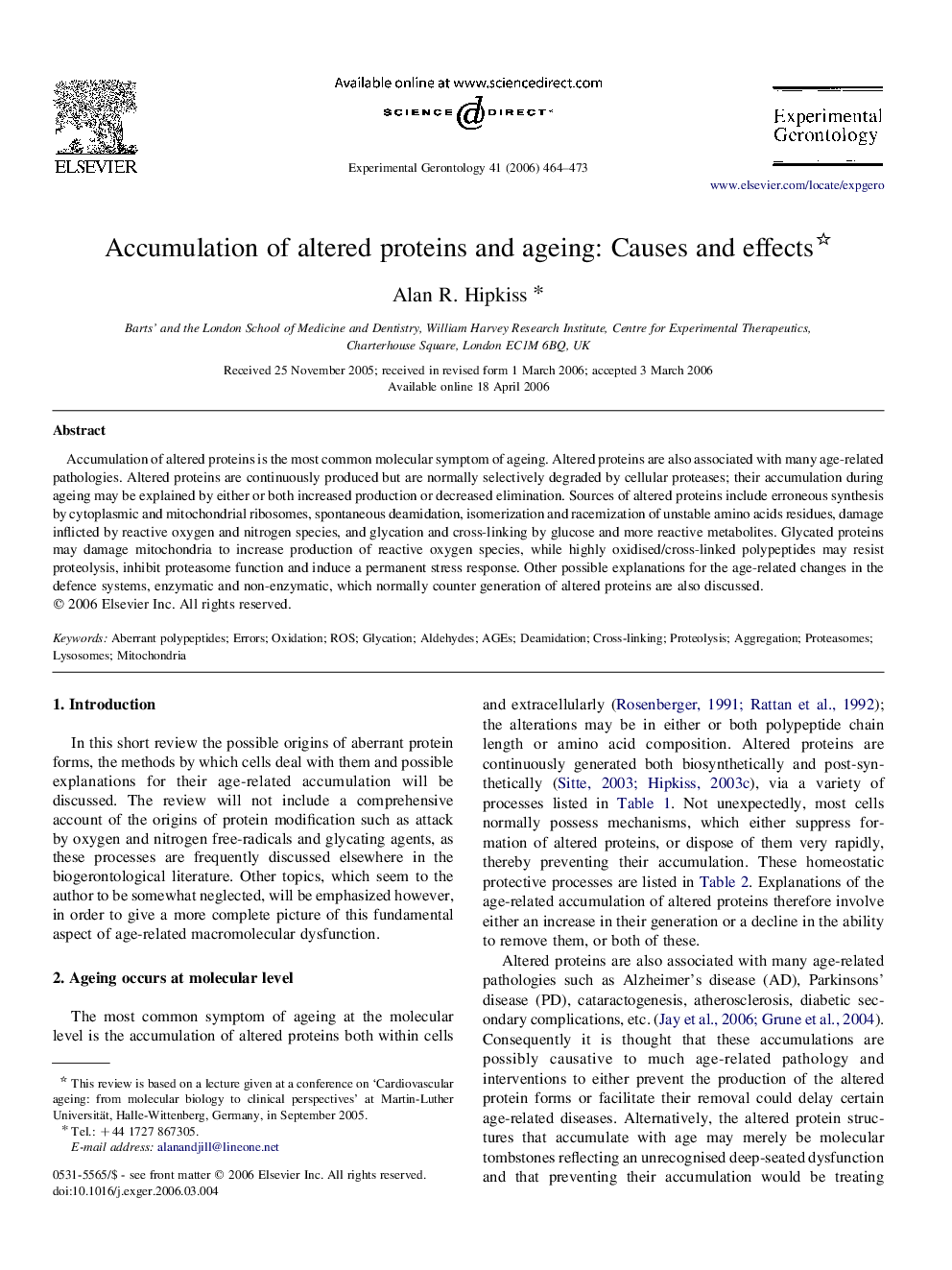| Article ID | Journal | Published Year | Pages | File Type |
|---|---|---|---|---|
| 1907602 | Experimental Gerontology | 2006 | 10 Pages |
Accumulation of altered proteins is the most common molecular symptom of ageing. Altered proteins are also associated with many age-related pathologies. Altered proteins are continuously produced but are normally selectively degraded by cellular proteases; their accumulation during ageing may be explained by either or both increased production or decreased elimination. Sources of altered proteins include erroneous synthesis by cytoplasmic and mitochondrial ribosomes, spontaneous deamidation, isomerization and racemization of unstable amino acids residues, damage inflicted by reactive oxygen and nitrogen species, and glycation and cross-linking by glucose and more reactive metabolites. Glycated proteins may damage mitochondria to increase production of reactive oxygen species, while highly oxidised/cross-linked polypeptides may resist proteolysis, inhibit proteasome function and induce a permanent stress response. Other possible explanations for the age-related changes in the defence systems, enzymatic and non-enzymatic, which normally counter generation of altered proteins are also discussed.
